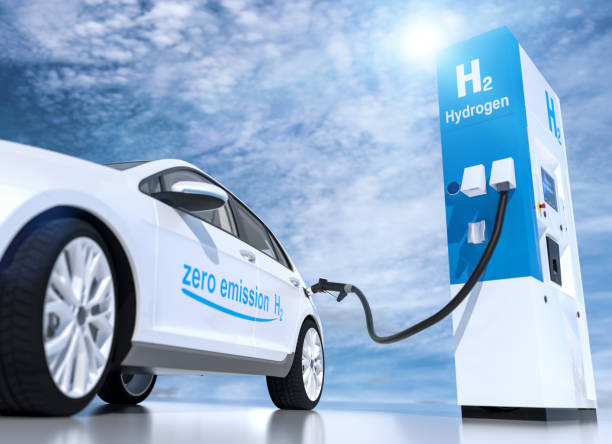Understanding Buy Now, Pay Later Options for Vehicle Purchases
Purchasing a vehicle is a significant financial commitment, and traditional payment methods are not always accessible to everyone. Buy now, pay later programs have expanded beyond retail goods into the automotive sector, offering flexible payment arrangements that allow buyers to acquire a vehicle and spread costs over time. These financing solutions can make car ownership more attainable, but they come with specific terms, eligibility requirements, and potential costs that vary by provider and location.

How Buy Now, Pay Later Works for Vehicles
Buy now, pay later financing for vehicles operates differently than traditional auto loans. Instead of securing a loan through a bank or credit union, buyers work with specialized financing companies or dealerships that offer installment payment plans. These arrangements typically involve an initial down payment followed by regular payments over a set period. The approval process may be faster and more flexible than conventional loans, often considering factors beyond credit scores. Some programs allow buyers to drive away with a vehicle after making a small upfront payment, while others require more substantial deposits depending on the buyer’s financial profile and the vehicle’s value.
Eligibility Requirements and Application Process
Qualifying for buy now, pay later vehicle financing generally requires proof of income, a valid driver’s license, and sometimes proof of residence or employment. While credit history is considered, many programs are designed to accommodate buyers with less-than-perfect credit or limited credit history. The application process typically involves submitting financial documentation, undergoing a credit check, and providing personal identification. Approval timeframes can range from minutes to several days depending on the provider and the complexity of the financial review. Some programs require co-signers or additional documentation if the applicant’s financial situation does not meet standard criteria.
Payment Structures and Terms
Payment arrangements for vehicle financing through buy now, pay later programs vary significantly. Terms can range from several months to several years, with weekly, biweekly, or monthly payment schedules. Interest rates and fees differ based on the provider, the buyer’s creditworthiness, the vehicle’s age and value, and the length of the financing term. Some programs offer interest-free periods if payments are made on time, while others charge interest from the start. Understanding the total cost of financing, including all fees and interest charges, is essential before committing to any agreement. Late payment penalties can be substantial and may affect credit scores or result in vehicle repossession.
Available Providers and Program Comparison
Several companies and dealership networks offer buy now, pay later financing for vehicles. These providers differ in their approval criteria, payment terms, interest rates, and vehicle selection. Below is a comparison of typical providers in this space:
| Provider Type | Services Offered | Key Features |
|---|---|---|
| Specialized Auto Finance Companies | Installment payment plans for new and used vehicles | Flexible approval criteria, varying credit requirements, direct dealership partnerships |
| Dealership In-House Financing | On-site financing with flexible terms | Immediate approval possible, may accept lower credit scores, vehicle selection limited to dealership inventory |
| Online Financing Platforms | Digital application and approval process | Quick decisions, nationwide dealer networks, transparent terms and pricing |
| Credit Union Auto Programs | Member-focused financing with competitive rates | Lower interest rates for qualified members, personalized service, membership requirements |
| Peer-to-Peer Lending Platforms | Individual investors fund vehicle purchases | Alternative to traditional financing, varying terms, may require strong application |
Prices, rates, or cost estimates mentioned in this article are based on the latest available information but may change over time. Independent research is advised before making financial decisions.
Advantages and Considerations
Buy now, pay later vehicle financing offers several advantages, particularly for buyers who may not qualify for traditional auto loans. The application process is often simpler and faster, with more lenient credit requirements. Payment flexibility allows buyers to manage their budgets more effectively, and some programs report positive payment history to credit bureaus, helping buyers improve their credit scores over time. However, these programs may come with higher overall costs compared to traditional financing, including elevated interest rates and additional fees. Buyers should carefully review all terms, calculate total costs, and ensure they can consistently meet payment obligations to avoid penalties or vehicle repossession.
Regional Availability and Regulations
Buy now, pay later vehicle financing availability varies by region and is subject to local regulations. In the United States, these programs are widely available through dealerships and specialized finance companies, with state-specific consumer protection laws governing interest rates, fees, and repossession procedures. Other countries have their own regulatory frameworks that impact how these programs operate, including caps on interest rates and mandatory disclosure requirements. Buyers should familiarize themselves with local laws and consumer rights before entering any financing agreement. Consulting with financial advisors or consumer protection agencies can provide additional guidance and help buyers make informed decisions.
Making an Informed Decision
Choosing buy now, pay later financing for a vehicle requires careful consideration of personal financial circumstances, the total cost of financing, and the reliability of the provider. Buyers should compare multiple offers, read all contract terms thoroughly, and ask questions about anything unclear before signing. Understanding the full payment schedule, including interest rates, fees, and penalties for late or missed payments, is crucial. Additionally, buyers should assess their ability to maintain consistent payments throughout the financing term and consider how the arrangement fits into their broader financial goals. Responsible use of these programs can facilitate vehicle ownership while building credit, but mismanagement can lead to financial strain and loss of the vehicle.




